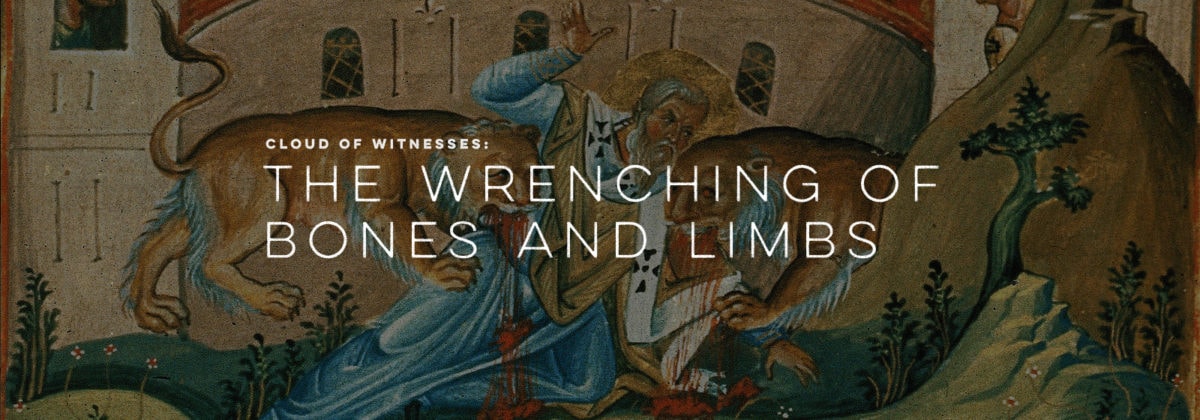What is the driving force of your life? I’ve been considering what St. Paul writes in his first letter to the Corinthians: “Make love your aim” (1 Cor. 14:1 RSV). This is a beautiful encouragement is it not? Undoubtedly this may be tattooed on various people throughout hipsterdom Christianity. I might even be envious. Our culture gets this too. The Beatles have memorably wrote “all you need is love”, and artist after artist continue to be inspired by love. You would be hard pressed to find someone who does not at least like love. Paul’s words here are very encouraging and memorable. But what he writes is actually a command to move decisively in a single direction, towards love. How is that single focus and unswerving commitment to love going for you? Is love your driving force?
It’s not going too well for me. It’s not that I don’t admire love, nor is it a lack of belief that God is love. I believe these things, but fall short much like the Corinthians. In the Christian life it is so easy to get focused on good things, secondary things that become the wrong focus when elevated to what is supposed to be our primary focus. For the Corinthians, this was spiritual gifts and experience. They were determined to speak in tongues, to experience spiritual ecstasy and as a result they began to find a sense of worth by ranking themselves by such things.
Believe it or not, Paul did not write 1 Corinthians 13 for weddings (… you know “Love is patient, love is kind, etc.”). His poetic reflection on love finds itself smack-dab-in-the-center of his serious exhortation about spiritual gifts. Essentially, he says to the Corinthians “Look, these things you are pursuing are good but they are not the ultimate good, they will eventually pass away. Smarten up! The one thing that is worth focusing on, the one thing that will never end or pass away is love. So, seek love with all you have and let the other aspects of the Christian life find their place in the pursuit of love.”
Again, this is such a beautiful command. But it seems beyond me at times, it feels fleeting like a short vacation to visit a family member, when time escapes you and comes to an end too soon.
It is so easy for me to get caught up in the academic side of my faith. I think that I will find God in reading more books, commentaries, journals, etc. Yet I can find myself 300+ pages into a incredible book on the resurrection of Jesus and find that I am not moved one inch closer to the heart of God. Are academics inherently bad? Goodness no. They are a good and necessary part of the Christian life—we are to seek to reform our minds. But learning and knowledge is not the end goal, or our primary focus. Paul writes “knowledge puffs up, but love builds up” (1 Cor. 8:1). Yet I find myself craving more and more knowledge, and it becomes my aim and focus rather than love.
Secondary pursuits, indeed good pursuits, in our Christian journey can often trump what is supposed to be our primary focus. And then, on top of this, we have to fight our own desires and selfishness.
Why isn’t love of our focus, our sole aim?
We have divided, sinful hearts. That’s not fun to hear, but it’s the truth. Love is actually a very hard thing for us, despite all our best pontificating about the topic.
Love is not infatuation and fleeting feelings, it is not the freedom to do whatever you want, it is not turning a blind eye to sin and wearing rose-coloured glasses.
If you are depending on your own ability to love people, you will fail, you will stop short, you won’t go the extra mile. You will settle for glimpses of love but not the real thing.
The cross is the most profound example of love in the world.
The cross is love on display, a love that will not relent.
Through the cross, God tells us the truth in love: the truth of our brokenness and need. Love is an enduring, suffering, selfless act of willing the good of another. God, in love, goes all the way in trying to reconcile us to himself, knowing no bounds or limits, because he is heartbroken over our rebellion and refusal of his love. God is not content to leave us in our sin, to turn a blind eye to how very costly it is to us; nor does he sugarcoat how offensive sin is to him. On the cross, we see how serious sin is and how far God is willing to go to forgive our sins. God entered into our suffering, into our sin-ridden world to save us while we were weak, sinners, and enemies of him (Rom 5:6, 8, 10).
Christian and non-Christian alike aspire to love, and may even boast that love is their aim. But when we take an honest assessment of our lives, of our motives, we see that we do not come even remotely close to the type of love God displayed on the cross.
What then is the purpose of making love our aim? It has to do with calibration, absolutely. But it also has to do a lot with realizing that love is not some impersonal force, it is not a feeling we muster up, it is not simply an ideal, and it is not an action alone. Love is immensely personal, because love is a person.
St. John writes “God is love”.
The statement that “God is love” means that the only true love is God himself. All our attempts at loving are but a reflection of God. You can only offer what you’ve received. If you’re extending love disconnected from the source of love, you will only be able to go so far. It is only once we step faithfully towards Jesus that we can access the infinite, eternal love of God. Only then can love become our aim, because our aim has become God, who is love. We enter into love himself, who will never cease to pursue us or rescue us on this side of eternity. We enter into a well-spring of love that we can then share with others because “God’s love has been poured into our hearts” (Rom 5:5). We enter into the very life of the Triune God and the love that holds the very fabric of all creation together.
Keep your eyes fixed on Jesus, and as you do He will make love your aim. He loved us first, and as we get glimpses of how great his love is for us it fills us with love for him, and for others.




